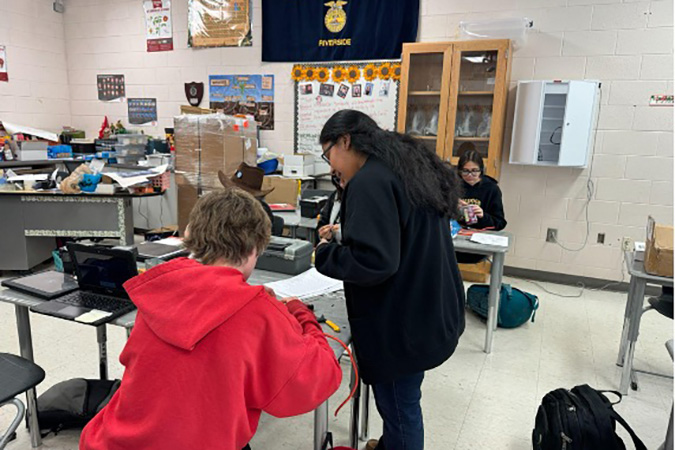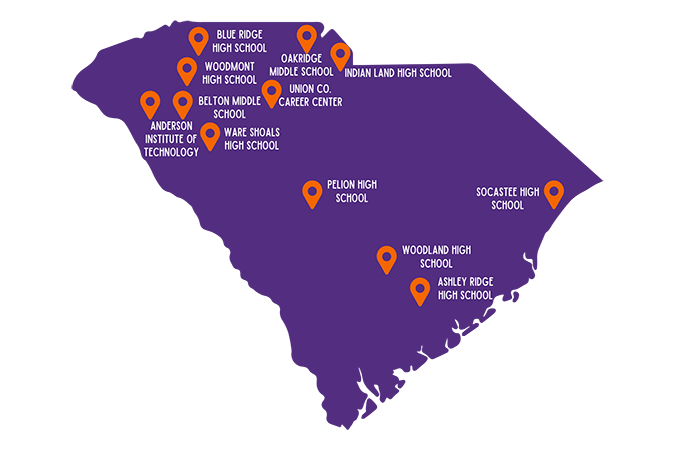How do I get started?
Step 1: Explore the Profession
Do you have a passion for agriculture?
Do you enjoy working with and helping others?
Do you want to make a positive difference in people’s lives?
If you said YES! You should consider teaching agriculture for your professional career.
Step 2: Obtain a Degree
If you're passionate about agriculture and enjoy working with people, the Agricultural Education major could be ideal for you. This program prepares you to teach future agricultural leaders and consumers, addressing the high demand for agriculture teachers and offering opportunities beyond formal education. It's the most diverse agricultural degree, covering areas like animal agriculture, science, plant agriculture, agricultural mechanics, agribusiness, and natural resources. You can choose from two concentrations, leadership and teaching, to align with your career goals.
Transfer from Two-Year Degree Programs
Orangeburg-Calhoun Technical College
Four Year Degree Program
Step 3: Student Teaching
To gain teacher certification in South Carolina, students must achieve a minimum 2.75 GPA for admission to the professional level and maintain it throughout the coursework and student teaching experience. This 12-week experience involves guided participation in agricultural education, where candidates are paired with a cooperating teacher. During the first week, student teachers observe and prepare lesson plans; by the third week, they take on full teaching responsibilities and assist with FFA activities. When asked about their upcoming student teaching, students expressed excitement about interacting with students, collaborating with teachers, and applying what they've learned at Clemson.

Step 4: Obtain a Job
Because of the high demand for agricultural education teachers, many students are offered and secure teaching positions prior to graduation. The agricultural education faculty at Clemson University are contacted regularly by district administrators when positions are open or new programs are formed. Close knit ties to and communication with alumni also provide updates and opportunities for graduates to apply for positions as soon as the opportunities become open. Employment opportunities can be found on the South Carolina Agricultural Education website.
Employment Opportunities in South Carolina-
Employment Locations
- Pelion High School (Pelion, SC)
- Woodland High School (Dorchester, SC)
- Ashley Ridge High School (Summerville, SC)
- Woodmont High School (Piedmont, SC)
- Blue Ridge High School (Greer, SC)
- Indian Land High School (Lancaster, SC)
- Ware Shoals High School (Ware Shoals, SC)
- Anderson Institute of Technology (Anderson, SC)
- Belton Middle School (Belton, SC)
- Socastee High School (Myrtle Beach, SC)
- Union Co. Career Center (Union, SC)
- Oakridge Middle School (Clover, SC)

Sponsors


